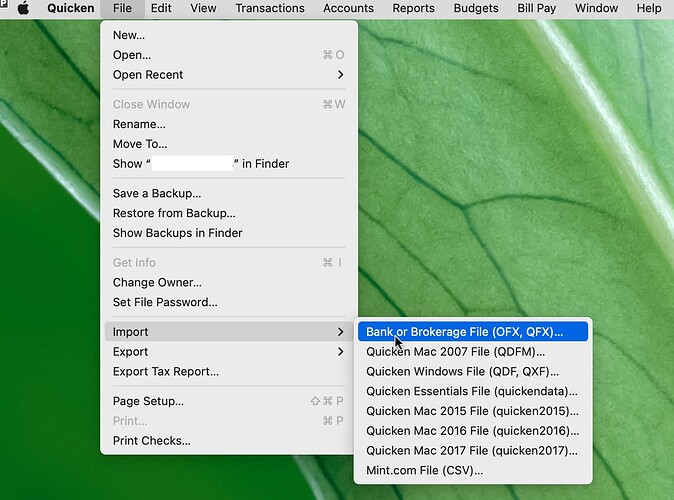Hi Nello,
I spent 20 minutes looking at the Mint.com site and could not find information about import/export data capability. This didn’t surprise me when I read that Intuit purchased Mint. When Intuit offered up the new Quicken after the bankruptcy of the original Quicken, all the old Quicken.com support info, knowledgebase, and the hosted forum were deleted. I suspect Mint is not being supported/improved as other accounting apps are. And why would they want to cut into the Quicken revenue?
Mint has no general search function on the home page which is odd. There is one on the forum page but not helpful. I’ve never seen so many white spaced pages that describe the obvious features that all accounting apps have but really say nothing.
So let’s start with the Mint export types first. Since I don’t use Mint, eyeball your Mint menus to see if Import/Export is shown. For example, my Citi card export page shows CVS, Txt (tab-delimited), QFX (a defunct proposed standard for banking), OBO (QuickBooks, na), and OXF the current banking standard accepted by a consortium of banks and Quicken (the licensing fees QFX required were a show-stopper for the banks).
If one of these formats (QFX or OFX) are supported, then I’d recommend you abandon Mint for a more modern, powerful application. I am working with Banktivity, MoneyDance (only QIF/OFX file import), and See Finance on a conversion project to import 10 years of 30 yrs old data. I too reviewed these conversion apps and many had “yes, but…” phrases, like doesn’t handle investments and/or splits.
Any app you choose should support OFX.
Do you have Investment data to convert?
I can help you with this but I need to know the export capabilities of Mint.
We can work offline from Tidbits since this is a personal problem.
Pls advise MIke Noonan mrnoonan@yahoo.com
PS, if only the one credit file data is involved I see this as a 10-column Excel conversion where you need to add the category. Need to determine what ID is.
